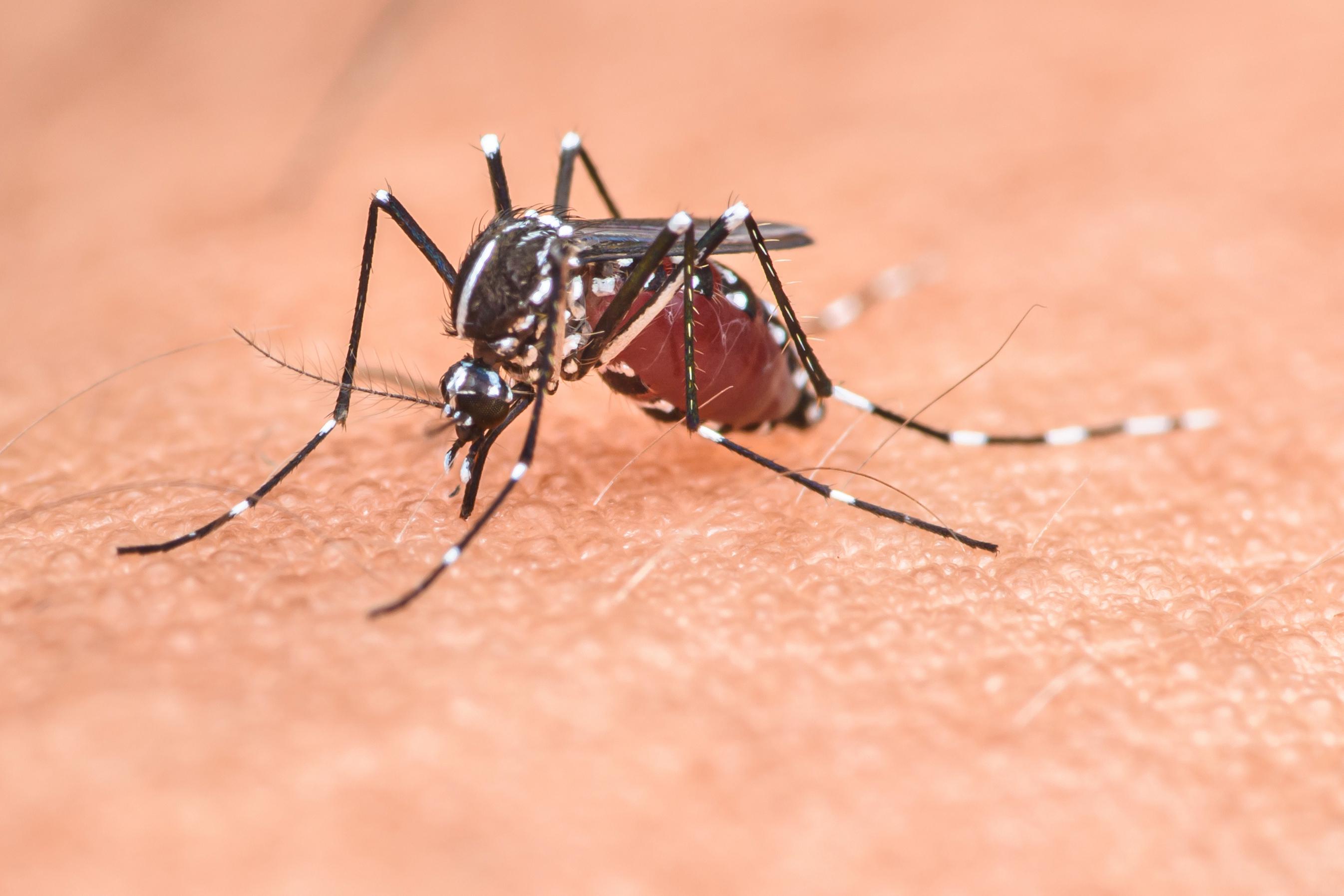World Mosquito Day
Posted by Mosquito Squad
August 20, 2024

Author: Emma Grace Crumbley, Entomologist
Mosquitoes continue to be the deadliest animal on the planet as their ability to spread diseases causes massive casualties annually. This World Mosquito Day, take some time to learn about mosquito habitats, diseases, and ways to avoid being bitten. The more you know, the more you can do to Fight the Bite!
Mosquito Facts
Mosquitoes are insects in the order Diptera, which is the same scientific order as flies. Mosquitoes have a few characteristics that make them stand out from other insects:
- One pair of narrow wings
- Long, slender legs
- A piercing/sucking mouthpart called a proboscis
Not all mosquitoes bite. Some species don't require blood meals, and male mosquitoes don't bite at all. Female mosquitoes, on the other hand, bite people and animals to drink their blood and nourish their eggs. Using their proboscis, mosquitoes probe the skin looking for blood vessels and deposit saliva when they feed. This is ultimately how mosquito-borne illness is spread: through the bites of infected mosquitoes.
Malaria
One of the deadliest diseases spread by mosquitoes is Malaria. According to the CDC, “Malaria continues to be a leading cause of preventable illness and death in the world, resulting in nearly 249 million cases and 608,000 deaths across 85 countries.” Although Africa is at the highest risk for malarial transmission, the United States saw eight cases of locally transmitted Malaria last year.
Protect yourself from Malaria by learning more about how it's spread here!
Preventing Mosquitoes
Another key characteristic of mosquitoes is their affinity for water. Mosquitoes are semi-aquatic organisms and require stagnant water to lay their eggs and develop into larvae. The more standing water in an area, the more mosquitoes there will be. And more mosquitoes mean more bites!
Remember to keep your yard mosquito-free by following the 7Ts:
- Tip: Get rid of standing water in your outdoor spaces. Standing water may be in your child’s plastic toys, areas underneath downspouts, plant saucers, or dog bowls. Other areas may include traps, gutters, and flat roofs.
- Toss: Remove excess grass, leaves, firewood, and grass clippings from your yard.
- Turn: Turn over larger yard items that could hold water, like children's portable sandboxes, plastic toys, or birdbaths.
- Remove Tarps: If tarps stretched over firewood piles, boats, or sports equipment aren't taut, they may be holding water that you should remove.
- Take Care: Take care of home maintenance needs that can lead to standing water. This includes cleaning out gutters, making sure downspouts are adequately attached, keeping your grass cut low, and checking irrigation systems for leaks.
- Team Up: Despite taking all precautions in your home, talking to neighbors is crucial to mosquito and tick control. Homes with little space between lots can mean that mosquitoes breed at a neighbor's house and affect your property.
- Treat: Utilize a mosquito control barrier treatment around your home and yard.
Fight the Bite!
Whether you’re concerned about diseases or just don’t like getting bit up, Mosquito Squad is here to help. Every Mosquito Squad location is locally owned and operated, which means each treatment you receive will be performed by technicians who know first-hand about your region’s specific mosquito needs. Call today for a free quote and to learn more about our mosquito services.
